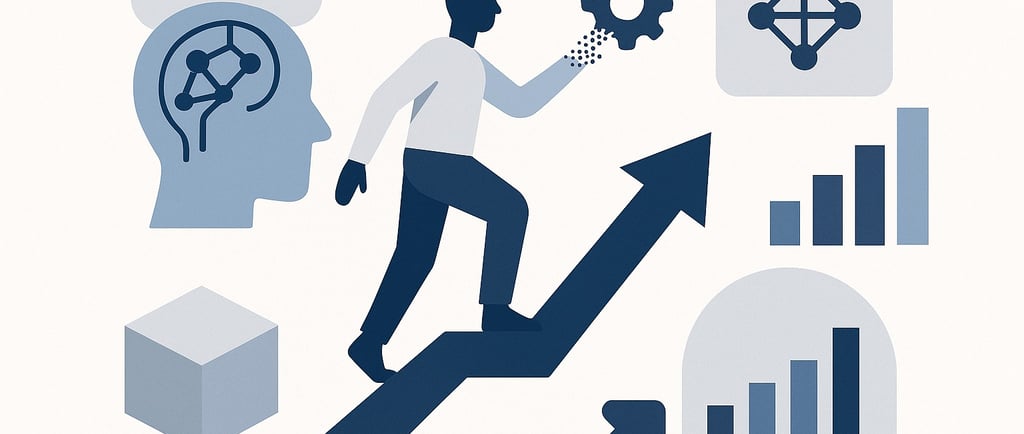Navigating the AI Adoption Journey
A recent study reveals that early AI adopters in manufacturing initially face productivity drops due to disruption. However, those who endure this phase can achieve significant long-term gains. The findings suggest that agility and adaptation are vital for success in the evolving AI landscape.
USAGE
The AI Maker
9/8/20252 min read


In the world of business, change is often accompanied by uncertainty, and the adoption of artificial intelligence (AI) is no exception. A recent study presented at a European Central Bank conference sheds light on the complex relationship between AI adoption and productivity, particularly within the manufacturing sector. While the prevailing narrative suggests that AI enhances productivity and augments jobs, the findings of this study tell a different story.
The research, which analyzed data from the U.S. Census Bureau and surveys conducted between 2017 and 2021, indicates that early adopters of AI initially experienced a drop in productivity. This decline was attributed to the disruption caused by integrating AI technologies, which interfered with established practices, such as maintaining low inventories. Kristina McElheran, one of the authors of the study, highlighted that the short-term pain experienced by these companies is a common side effect of such transformative changes.
However, the narrative doesn’t end there. Over time, those firms that managed to weather the initial upheaval began to see significant improvements in sales growth, productivity, and employment. The key takeaway here is that survival during the transition period is crucial. Companies that navigate these challenges effectively can emerge stronger and more competitive.
Interestingly, the study revealed that older and larger companies often struggled more with the transition. This insight raises an important question: how can established firms adapt to the rapidly evolving landscape of AI? It seems that agility and a willingness to embrace change are essential for success in this new era.
During the conference, ECB President Christine Lagarde emphasized that while a significant portion of the workforce in Europe—between 23% and 29%—is highly exposed to AI, this need not lead to a 'job apocalypse.' Instead, the expectation is that while some roles may be phased out, new opportunities will arise in response to the changing technological landscape. This perspective encourages a balanced view of AI’s impact on the job market.
As businesses consider their AI adoption strategies, it’s important to recognize that the journey may involve initial challenges. However, with the right approach and a focus on long-term goals, companies can harness the potential of AI to drive growth and innovation. In the end, the ability to adapt and thrive amidst change will be the hallmark of successful organizations in the AI era.
Your Data, Your Insights
Unlock the power of your data effortlessly. Update it continuously. Automatically.
Answers
Sign up NOW
info at aimaker.com
© 2024. All rights reserved. Terms and Conditions | Privacy Policy
